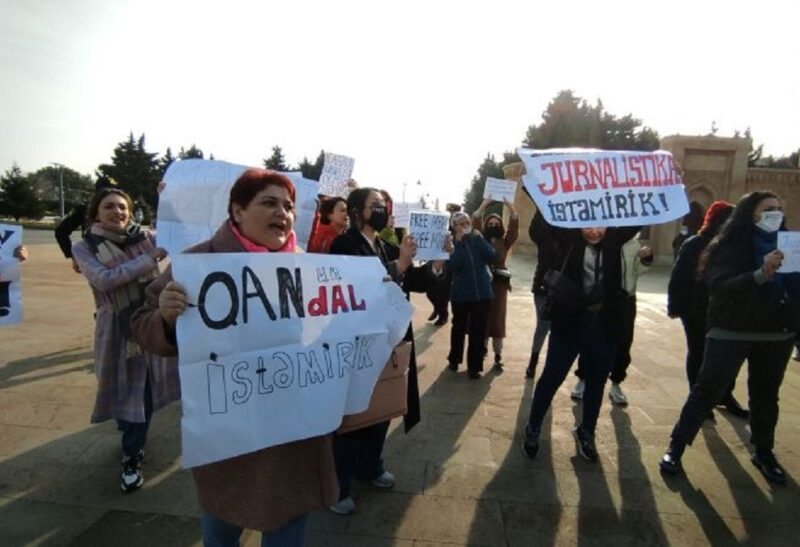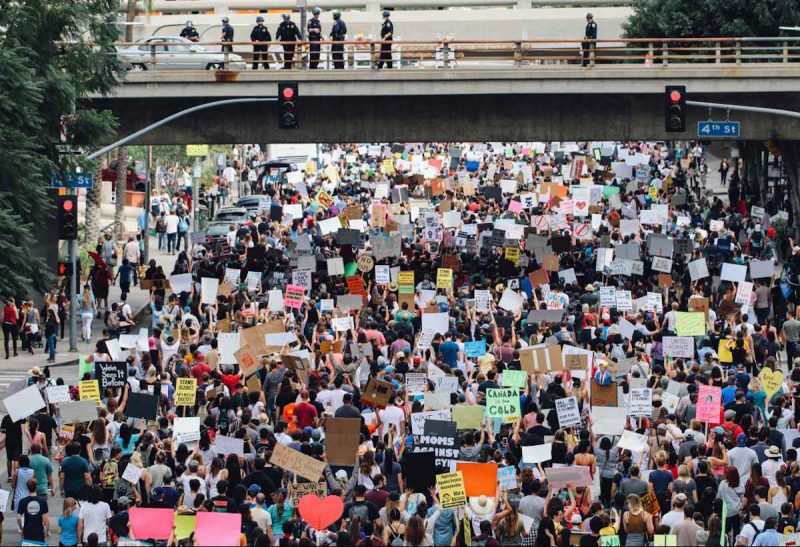Commentary by nopoliticalprisoner.org
On March 17, Azerbaijan’s authoritarian President Ilham Aliyev was merciful. He signed a long-awaited decree of pardon, which was timed to mark the upcoming Novruz holiday. Aliyev pardoned 148 prisoners, among them 13 activists that human rights groups have labeled as political prisoners.
The decree is good news for all those who care about dramatic human rights abuses in Azerbaijan. It was indeed a long-sought step forward and incredibly happy news for all those pardoned and their families.
What this alone doesn’t change, however, is the very little hope if such occasional pardons could reverse the country’s devastating human rights trajectory.
This decree has again left a bitter aftertaste. There is still a lot of work to do. Several of the country’s prominent human rights defenders, journalists, opposition politicians and bloggers remain behind bars.
Even so, sentiments are mixed while considering that the use of such pardons also may disguise the highly oppressive government. The country places low on rankings for human rights, press freedom, religious freedom, rule of law, and more. President Aliyev’s routine pardoning decrees, which see the release of hundreds of prisoners, clearly highlights the arbitrary nature of justice in the country.
The rumors of the recent pardon, especially about releasing those imprisoned or awaiting trial on politically motivated charges, have long been in circulation. We have sadly heard of it so many times before. All the previous amnesties, pardoning decrees have been a great disappointment. They have signaled no fundamental change in government’s ongoing repression against critics or softening of President Aliyev’s tight-fist rule.
Freeing several political prisoners now is Aliyev’s maneuvering, is rather caused by his need for recognition before his upcoming White House visit and a likely need for credits in the near future, than an indicator of a more fundamental policy shift. His overall policy is incompatible with true liberalization or sign of opening.
The human rights community agree that the recent pardon covers a far larger number of political prisoners than previous pardons, still, it affects only a handful of political prisoners, whose numbers have continued to grow under the authoritarian rule of President Aliyev. The country still has close to 80 political prisoners, while the authorities carry on with the arrests despite local and international criticism.
There is hardly an international democracy watchdog left that has not pointed a finger at the Azerbaijani government for locking up critics on trumped-up charges. The government, mainly relying on its energy resources and geostrategic importance, has been able to resist the international pressure to release political prisoners or to undertake other, needed human rights reforms.
The periodic arrests and releasing few are part of a political game that for a long time has been long played by the country’s leadership before the eyes of the international community. The occasional release of prisoners does nothing to eliminate the problem of politically motivated arrests. The revolving prison door in Azerbaijan keeps whirling again and again.
Just 3 days before the recent pardoning decree, another senior opposition figure,
Mammad Ibrahim
was sentenced to three years on trumped up charges of hooliganism. Or, take the case of
Jeyhun Isgandarli
, opposition Popular Front Party activist that recently arrested on fake charges of narcotic possession.
And, many more prominent dissidents remain behind bars, like the leading human rights lawyer Intigam Aliyev, the top investigative journalist Khadija Ismayilova, the youth activist Ilkin Rustamzade and the prominent opposition politician Ilgar Mammadov. The list goes on. They are all the symbols of the injustice and oppression taking place in Azerbaijan. They all paid a heavy price in a repressive environment that imprisons and tortures anyone who dares to champion a democratic alternative. Cases like these abound in Azerbaijan, where dozens of people are in prison following flawed prosecutions on political grounds, locked away on fabricated charges of “tax evasion,” “hooliganism,” “drugs possession” or ill-defined legal claims of “anti-constitutional activity” or “high treason.”
And, then there is a continuing practice of forcing political prisoners to write an appeal of clemency and to sign a statement promising not to commit to ‘illegal’ behavior, implying guilt for past crimes. The political prisoners – unlike other types of inmates – are often being forced or strongly recommended by the authorities to write humiliating statements of ‘loyalty’, addressed to President Ilham Aliyev, as a condition for a Presidential pardon. For instance, according to the family members and lawyers of currently imprisoned Ilgar Mammadov, a prominent political analyst and chair of the opposition group REAL (Republican Alternative), prison officials repeatedly tried to force him to write a letter to President Aliyev to apologize for his alleged actions. They promised Mammadov that he would be released in exchange of such a deal. Mammadov steadfastly rejected, saying he has no repentance for crimes which he never committed in the first place.
By getting such remorseful pleas from prisoners, the authorities’ motivation is straightforward: To present President Aliyev as ‘merciful’ and to clear his government from the international criticisms on politically motivated arrests. All these concerns raise the important issue of how his government brazenly uses imprisonment against its critics, who face humiliation in return of their release from jail.
By now, the US and EU are well aware of President Aliyev’s routine practice of imprisoning his critics. Nonetheless, they never set release of political prisoners as one of the main conditions for improving relations with Azerbaijan and never gave a high salience to this issue. Their groundless optimism and wishful thinking in past years has misplaced and backtracked on human rights. Some international partners, especially US Helsinki Commission’s
draft bill
, have lately aimed to take exceptional steps against Azerbaijani government to signal the alarm over the crackdown on human rights in Azerbaijan.
Azerbaijan has with human rights. Still, The pardoning decree might be a right momentum to seize upon Azerbaijan for settling the pressing fundamental and systemic problems that Azerbaijan has with human rights. Still, releasing political prisoners should not be seen as a litmus test for Aliyev’s pro-West rationale, as this has long been a bargaining chip in Aliyev’s deals with the West. And, he can ‘sacrifice’ his political prisoners when necessary. This time, ‘sacrifice’ is likely to be linked to his White House visit. For meaningful results in human rights terms more pressure is needed, including the threat of consequences such as visa bans and asset freezes on Azerbaijani officials implicated in abuses, if measurable progress is not made, starting with the freeing all the remaining political prisoners.
The plight of human rights, and concrete improvements, such as securing the release of Khadija Ismayilova, Intigam Aliyev, Ilgar Mammadov, Seymur Hazi, Ilkin Rustamzade and dozens of other wrongly imprisoned leading civil society should be a core objective of international engagement with Azerbaijan. Pressure can work, and accountability is the way to move forward against President Aliyev who has been so dogged in dismissing human rights concerns for more than a decade.
Originally published on the
No Political Prisoners website
.
The views expressed in this article are the author’s own and do not necessarily reflect Meydan TV’s editorial policy.



